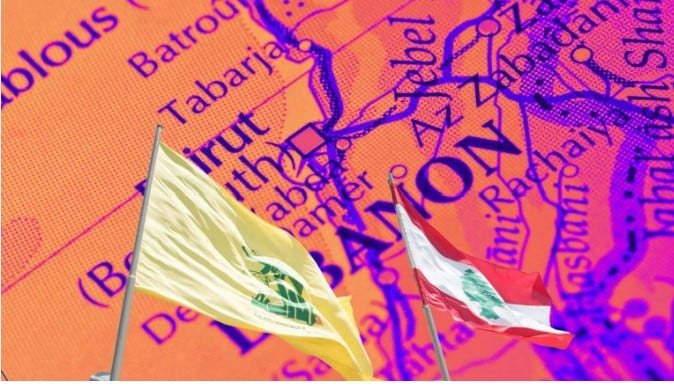Credit: Globely NewsBy James M. Dorsey
Hi, if you value independent, fact-based analysis, please consider becoming a paid subscriber. Paid subscribers help ensure the survival of The Turbulent World’s unvarnished journalism. You can contribute by clicking on the subscription button and choosing one of the subscription options.
To watch a video version of this story or listen to an audio podcast please subscribe.
Thank you for your support and loyalty.
Hezbollah and Iran are playing political and military defence in Lebanon.
Militarily, Hezbollah has demonstrated that it may be down but is not out as a result of Israeli body blows in recent weeks, including the September 27 killing of its leader, Hassan Nasrallah.
This week, Hezbollah successfully fired medium-range missile barrages at Tel Aviv and the Israeli port city of Haifa. Hezbollah fighters have also stood their ground in fighting back Israeli incursions into southern Lebanon.
It was unclear whether Hezbollah was refraining from deploying its long-range precision-guided missiles to avoid further escalation or whether Israel had successfully targeted its arsenal.
Meanwhile, Iran braced for a likely Israeli strike in retaliation for the Islamic Republic’s recent missile attack on military and intelligence targets near Tel Aviv that could determine whether hostilities escalate into an all-out Middle East war.
Credit: Washington Institute for Near East Policy
At the same time, Iran appeared determined to maintain its network of non-state actors as its primary frontline in confronting Israel.
In practice, this mainly meant beyond Hezbollah Yemen’s Houthi rebels, who have disrupted Red Sea shipping and lobbed missiles and drones at Israel, forcing it to effectively close its southern port of Eilat.
In a potential indication of the setbacks, Hezbollah suffered because of Israeli attacks on the group’s communications and weapon depots and targeting of its political and military leadership, Houthi and Iraqi drone and missile experts headed to Lebanon to support Hezbollah, according to Elijah J. Magnier, a pro-Hezbollah military analyst.
Even so, Syria, a key member of the Iranian-backed network, and Iraq, home to a host of Iran-friendly militias, scrambled to remain on the sidelines of the escalating conflict.
More fundamentally, the network, dubbed the Axis of Resistance, has little to show for itself a year into the Gaza war beyond adding to the economic cost of Israel’s war in Gaza.
Keep reading with a 7-day free trial
Subscribe to The Turbulent World with James M. Dorsey to keep reading this post and get 7 days of free access to the full post archives.




